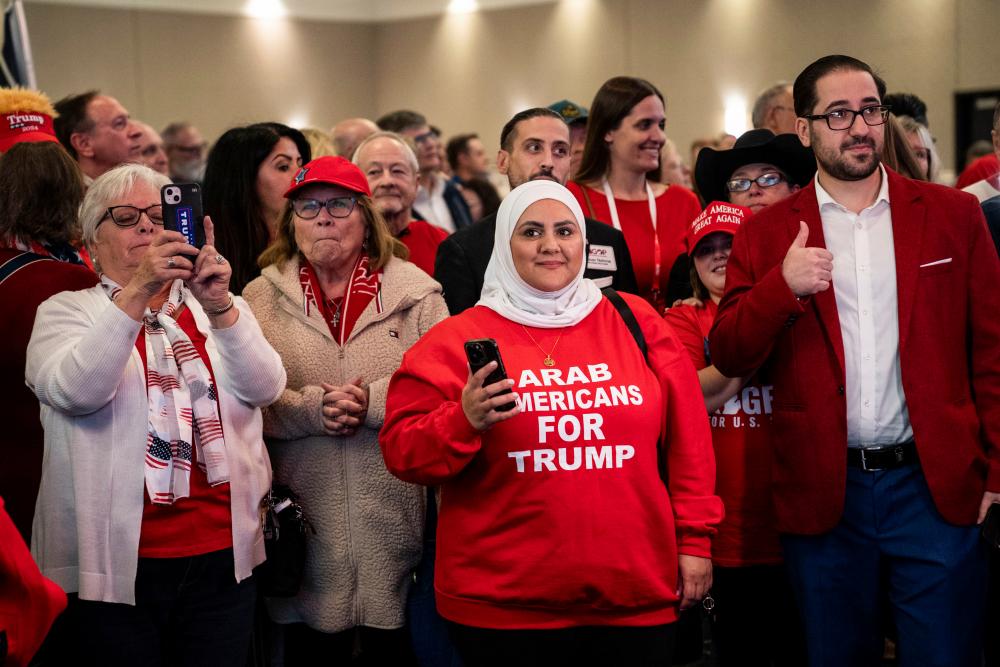In the recent election, Kamala Harris significantly underperformed in Michigan’s Arab American and Muslim communities, receiving at least 22,000 fewer votes than Joe Biden did in 2020. An analysis of vote data points to Harris’s struggles primarily stemming from Arab American voters either abstaining from voting or opting for third-party candidates. While Donald Trump saw minor improvements, adding about 9,000 votes in these key precincts, the broader decline in support for Democrats suggests a growing discontent among these communities. The Arab American Institute reported a decline in Democratic support in several precincts nationwide with significant Arab populations, showing a troubling trend for the party among these crucial voters.
Much of the reduced support for Harris can be traced to her and the Biden administration’s policies regarding Israel and Gaza, which alienated many in the Arab American community. In Michigan’s urban centers like Dearborn, which boasts a population that is nearly 60% Arab American, the gap between Biden and Harris’s vote totals was stark. Harris received just over 15,000 votes, while Biden had garnered around 31,000 in the previous election. Meanwhile, Trump, who campaigned vigorously in the area, saw his total rise to about 18,000 votes. The introduction of third-party candidates like Jill Stein and Cornell West, who attracted more than 50,000 votes statewide, further fragmented the Democratic vote.
The discontent didn’t stop in Michigan; similar patterns emerged across the Midwest. Harris’s poor performance among Muslim and Arab American voters had broad implications for her candidacy. The feelings of abandonment were more pronounced in areas where issues like inflation also resonated deeply. Some political analysts believe Harris’s shortfall could be greater than the 22,000 votes initially noted, especially given the extensive Arab American communities throughout Michigan. Rabiul Chowdhury, founder of Muslims for Trump, reflected sentiments that Trump capitalized on a lack of Democratic engagement, advocating for a memorable shift towards peace in Gaza that resonated with frustrated Muslim voters.
In specific cities like Hamtramck and Dearborn Heights, stark contrasts arose between the votes Harris received in 2020 and the current election. In Hamtramck, which is around 60% Arab American or Muslim, Harris received only 3,200 votes, despite Biden obtaining 6,500 previously. At the same time, Trump’s votes increased significantly, indicating a switch in allegiance among some voters. Observers noted that demographic differences—particularly the Yemeni and Bangladeshi American immigrants in Hamtramck—tend to lean more conservatively compared to the Lebanese population in Dearborn, traditionally more supportive of progressive candidates.
Dearborn Heights also showcased similar dynamics with Harris’s votes decreasing to 9,000 from Biden’s previous 12,000, while Trump’s tally inched to 11,000, marking a notable shift. Meanwhile, other precincts having significant Arab American populations saw a wider decrease in Democratic support, underscoring a systemic trend of disillusionment affecting the party. James Zogby, a seasoned pollster and a Democratic National Committee member, stressed that the Harris campaign was repeatedly warned of the dire consequences of failing to engage effectively with these communities, suggesting a severe oversight on the part of the campaign team.
Advocates for Arab American and Muslim voters expressed frustration with the lack of engagement. Mohamed Gula from Emgage emphasized the need for tangible changes to restore trust and support among these groups. Given the circumstances, Chowdhury pointed out that Muslim voters are likelier to support whichever party demonstrates a commitment to peace, stressing that the looming elections could hinge significantly on how candidates approach humanitarian issues. The 2028 electoral landscape could see a shift based on the current dissatisfaction, posing a challenge for Democrats in approaching pivotal issues in a manner that resonates with Arab American voters.

